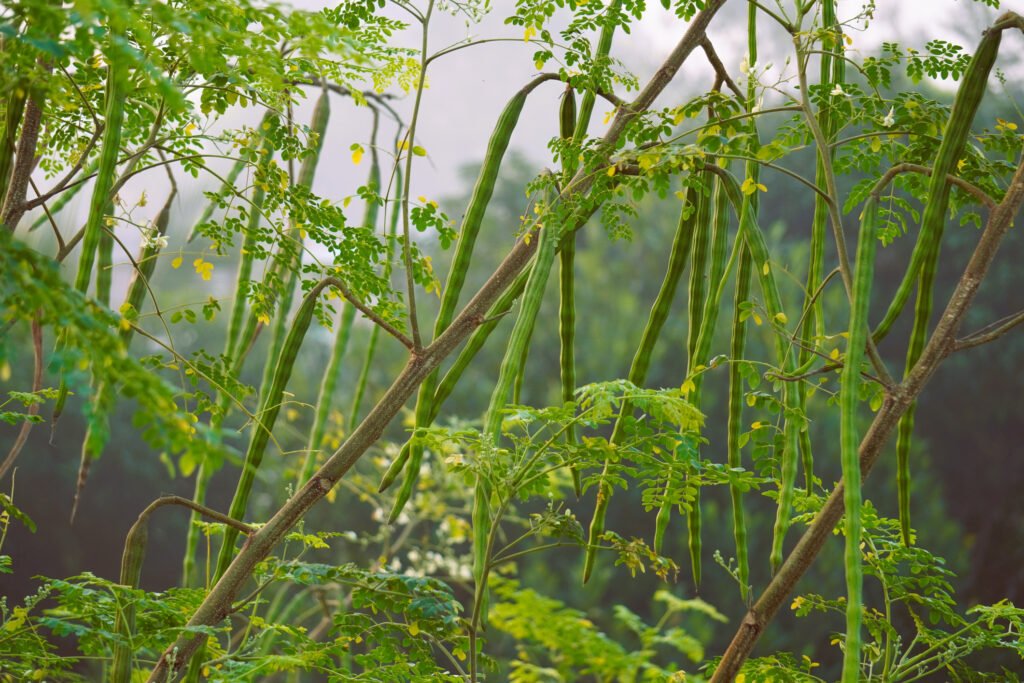1. Natural Air Purifier
Moringa trees absorb carbon dioxide, releasing oxygen and improving air quality. Their leaves also help filter dust and pollutants, making the air cleaner to breathe.
2. Combating Climate Change
Moringa grows quickly and efficiently captures carbon from the atmosphere, helping reduce the effects of climate change.
3. Reducing Food Miles & Plastic Waste
When moringa is grown locally, it eliminates the need for long-distance transportation of packaged superfoods. This reduces plastic waste, fuel consumption, and carbon emissions.
4. Enhancing Soil Health
Moringa’s deep roots prevent soil erosion, retain moisture, and improve soil fertility. Fallen leaves naturally enrich the soil, reducing the need for chemical fertilizers.
5. Water Conservation
Moringa is a drought-resistant tree that requires minimal water, making it ideal for regions facing water scarcity. It thrives in diverse climates without excessive irrigation.
Real Environmental Wins So Far
Moringa Shakti has inspired plantations in office buildings, residential societies, parks, orphanages, army cantonments, schools, villages, and clubs. Each tree planted contributes to a cleaner, greener India.
Be a Part of the Change
Every moringa tree planted is a step toward environmental success. Whether you grow one in your balcony, community garden, or workplace, your contribution matters.
Join the movement, plant moringa, and celebrate the environmental wins with us!






